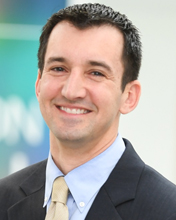Professor Elberg is the Faculty Director of the Center for Health & Pharmaceutical
Law at Seton Hall Law School, where he teaches in the areas of Health Law, Health
Care Fraud and Abuse, Evidence, and Data Analytics. His areas of interest include
corporate crime and compliance, the role of various actors in the enforcement of health
care fraud laws and regulations, and criminal justice policy.
Professor Elberg was selected as Seton Hall Law School Faculty Teacher of the Year
in 2021 and voted Professor of the Year by the Law School student body in 2023 (Paula
Franzese Excellence in Teaching Award).
Prior to joining Seton Hall Law School, Professor Elberg served for 11 years as an
Assistant U.S. Attorney at the U.S. Attorney’s Office for the District of New Jersey.
As Chief of the Office’s Health Care & Government Fraud Unit for five years, Professor
Elberg led one of the largest and most impactful health care units in the country,
supervising a team of 15 AUSAs and directing all of the Office’s criminal and civil
investigations and prosecutions of health care fraud offenses, including investigations
and prosecutions of fraud against the government and private health insurance plans,
illegal kickback schemes, violations of the Federal Food, Drug & Cosmetic Act, and
the improper diversion of prescription drugs including opioids, as well as all health
care-related actions brought by the Office under the False Claims Act. In addition,
Professor Elberg supervised and directed investigations regarding Foreign Corrupt
Practices Act violations, as well as fraud against certain other government agencies
and programs. Professor Elberg launched the District of New Jersey’s Data Mining Working
Group and spearheaded the Office’s efforts to utilize data analytics to identify,
investigate, and prosecute health care fraud offenses.
In 2013, Professor Elberg was awarded the Department of Justice’s Executive Office
of U.S. Attorneys Director’s Award for Superior Performance as an AUSA for his investigation
and prosecution of Maxim Healthcare Services, et al., which resulted in a recovery
of $150 Million (the largest ever in a home healthcare case), as well as the felony
convictions of nine individuals in six states, including three senior executives of
one of the nation’s largest home healthcare companies. In 2016, Professor Elberg led
the prosecution of Olympus Corp., resulting in a $646 million global criminal and
civil resolution for violations of the Anti-Kickback Statute and the Foreign Corrupt
Practices Act – the largest total amount paid in U.S. history for violations involving
the Anti-Kickback Statute and the largest resolution of any kind involving a medical
device company. In 2018, Professor Elberg was awarded the Health & Human Services
Office of Inspector General Award for Fighting Fraud, Waste, and Abuse for leading
the investigation and prosecution of Biodiagnostic Laboratory Services, which resulted
in 53 convictions, including 38 physicians – the largest number of medical professionals
ever prosecuted in a bribery case.
Professor Elberg has been a leading speaker throughout the country on issues relating
to health care fraud and abuse. He has been called upon to teach Department of Justice
criminal and civil health care prosecutors from across the country on several occasions,
including at the conference launching Deputy Attorney General Sally Yates’s Individual
Accountability Initiative. Professor Elberg’s article, A Path to Data-Driven Health Care Enforcement, was competitively selected for presentation at the 2019 Health Law Scholars Workshop
co-sponsored by Saint Louis University Center for Health Law Studies and the American
Society of Law, Medicine & Ethics.
Professor Elberg received his B.A., cum laude and with honors, from Dartmouth College
and his J.D., magna cum laude, from Harvard Law School. After graduating law school,
Professor Elberg clerked for the Honorable Nancy Gertner, United States District Court
for the District of Massachusetts, and then practiced law as an associate at the firm
of Dwyer & Collora LLP (now Hogan Lovells) in Boston, where his areas of practice
included white collar criminal defense, internal corporate investigations, and general
commercial litigation. He is a member of the Massachusetts, New Jersey, and New York
Bars.






